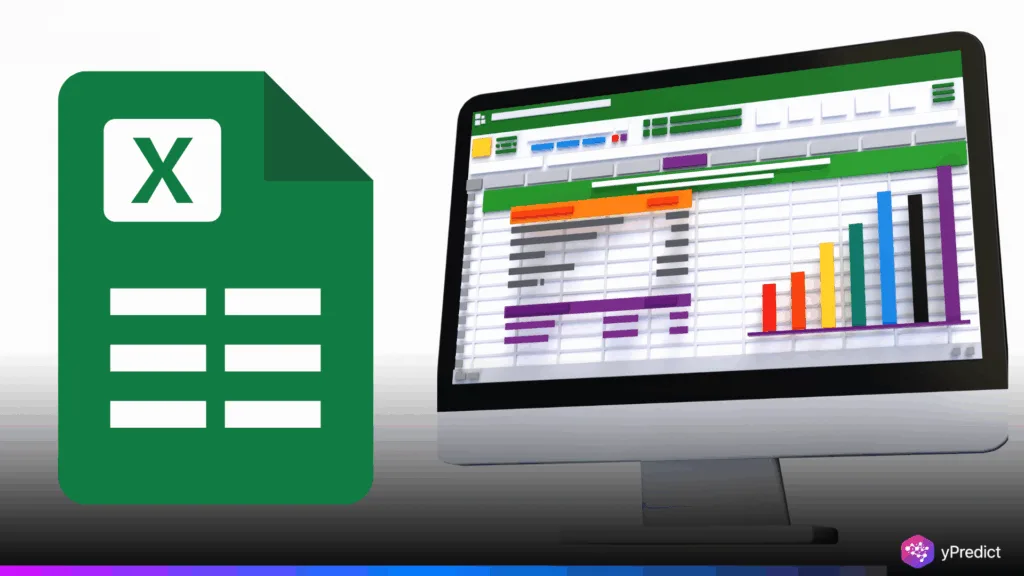
The workplace is changing, with Excel in the mix. For years and years, spreadsheets have been the core of financial modeling, data analysis, and business related decisions. This is changing due to a massive wave of innovation that is fundamentally altering the way billions of people interact with spreadsheets. Spreadsheet AI agents are changing every human and spreadsheet interaction.
In just the last month, numerous companies have released AI powered agents that can create complex projects. These relatively new tools have emerged for financial modeling, creating business forecasts, taking away the boring grunt work, and letting humans focus on strategy. Even if many of these have limited human oversight at this time, the rate of improvement is staggering and tells us that the future may look nothing like our current spreadsheets.
For employees, managers, and students, the question is not if they will use AI in their spreadsheets, but when they will. And for younger professionals entering data driven roles, the discussion is heating up: will these agents be their best assistants, or will they slowly replace entry-level experts?
How Spreadsheet AI Agents Are Changing Everyday Work
Excel and Google Sheets products have always required manual work. It used to take hours to build a financial model, write a business report, or collate raw data. Now, spreadsheet AI agents are able to complete those same tasks in minutes simply by using natural language prompts.
For example, a user can ask the agent to predict, analyze, and/or find errors in formulas related to revenues. This type of Excel automation helps reduce the mindless repetitive work and allows AI to perform more advanced analysis even for people with no technical capabilities.
This suggests that workplace productivity is entering a new era. Instead of spending the night fixing formulas and running calculations, employees can now focus on decision making and insights. The gap between technical experts and everyday users is closing rapidly.
What This Means for Billions of Spreadsheet Users
The impact of spreadsheet AI agents extends far beyond just convenience. For billions of users who rely on Excel or Google Sheets, these tools redefine how tasks are approached. Teams can handle larger datasets, perform faster scenario planning, and cut down errors.
The democratization of data skills is another major shift. Individuals who once struggled with complex functions can now achieve advanced results with simple queries. As Excel automation evolves, the line between expert and beginner continues to blur.
Implications for Young Talent in Data-Driven Roles
One of the biggest debates is how this affects young professionals entering the workforce. Traditionally, entry-level employees cut their teeth by crunching numbers, cleaning datasets, and preparing reports. These tasks served as both training and career stepping stones.
With spreadsheet AI agents, much of this foundational work is being automated. On one hand, this raises concerns about whether young talent will miss out on learning core analytical skills. On the other, it opens doors for them to spend less time on tedious work and more on strategic thinking from day one.
The future of work is clear: those who learn to use AI as a tool will thrive. Replacing human judgment is not the goal. Instead, the emphasis is shifting toward complementing human intelligence with AI speed and accuracy.
Will AI Replace or Empower Workers?
Fear is genuine but must be balanced. Automation replaces work but also creates new opportunities. Workers who will learn to use spreadsheet AI agents and embrace change will become more valuable than ever!
Instead of being replaced, some professionals will use these tools to take on larger, more complex assignments. AI is pushing or encouraging companies to reward creativity, strategy and decision making, all of which can not be automated.
For young, talented newcomers to the workforce, the barrier is mindset. If talent adjust their view of AI to see it as another collaborator (not a competitor) it will change their career trajectory. The ability to view tasks and combine human judgment with automated Excel tasks will define the next generation of leaders.
The Road Ahead for Spreadsheet AI Agents
Technology is always developing. Spreadsheet AI agents as of now are imperfect and make errors that typically need human supervision to identify. We can, however, see the direction forward: as these agents become even more trustworthy, they are going to revolutionise the industries that rely on spreadsheets.
Early adopters of these tools will see a leap in productivity, accuracy, and scale of work, whereas people who make necessary adaptations for this new ‘future of work’ will also be ahead of the curve and ready to take on higher-order thinking positions.
Final Thoughts
The competition for spreadsheet AI agents is not an emerging trend in technology, it is a revolution in how billions of people work every day. For workers, it allows more time for insights over rote tasks. For young talent, it is a whole new way of developing skills and careers.
Instead of wondering whether or not AI will replace humans, the important question is how humans will augment their potential with AI. Excel and Google Sheets are not going away, but the way we use them is about to change completely.






